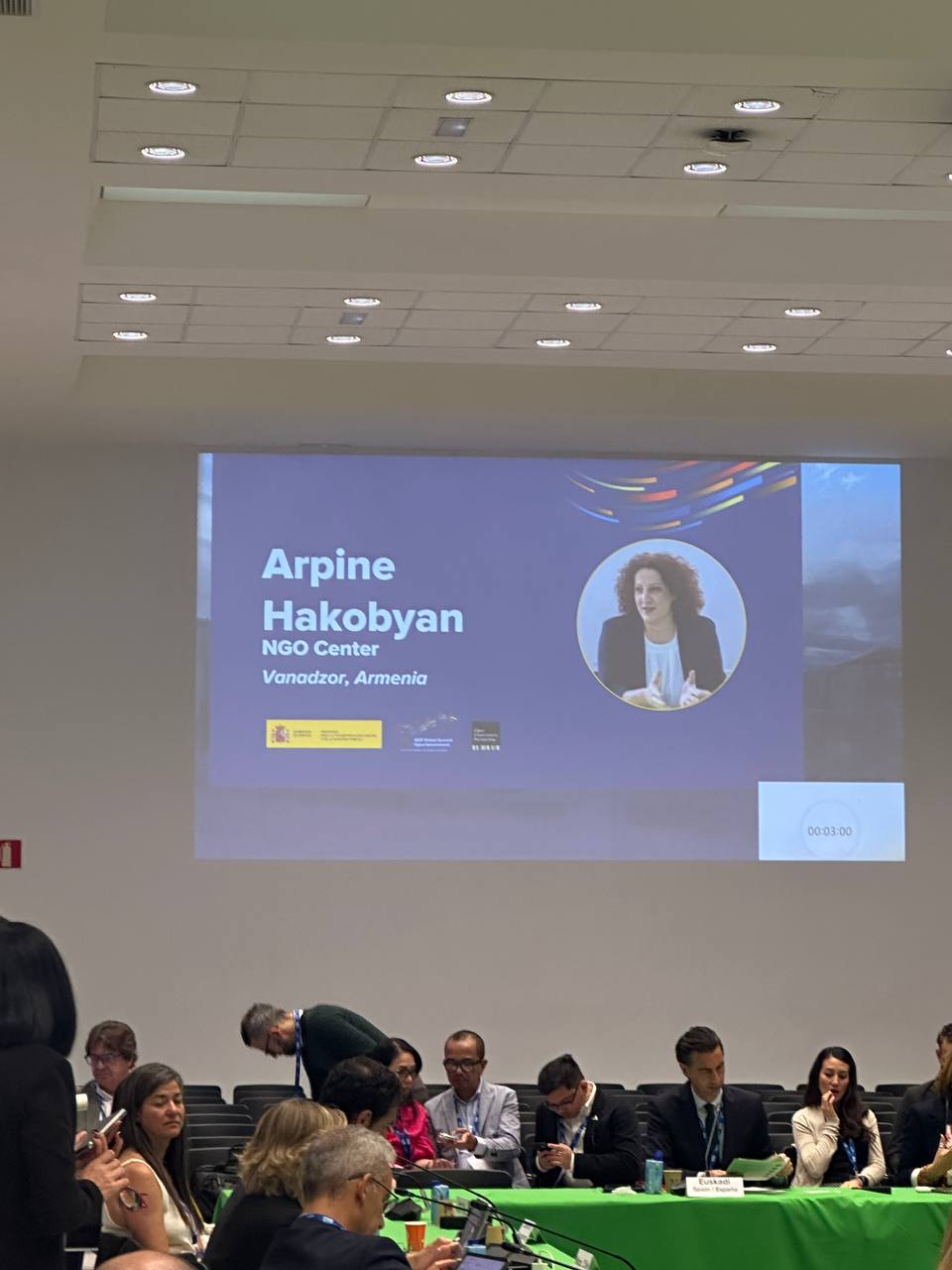
On October 6-10, the Open Government Partnership (OGP) Global Summit was held in Vitoria-Gasteiz, Spain, bringing together more than 2,000 participants from over 70 countries. The summit aimed to discuss how open government can restore trust and strengthen democracy. Participants focused on three key areas: enhancing the role of citizens and civic space in decision-making, strengthening transparency and accountability in governance, and leveraging digital tools and open data for innovation and effective governance.
During the summit, the Vitoria-Gasteiz Declaration was adopted, reaffirming the commitment of nearly 160 governments, civil society organizations, and partners to democracy, transparency, and the protection of civic space. NGO Center joined the declaration during the first days of the summit.
The Armenian delegation included representatives from public administration, local self-government bodies, and civil society organizations.
On October 8, the third day of the summit, NGO Center President Arpine Hakobyan delivered a speech during the high-level discussion on “Local Open Government: Transforming Democracy.” In her remarks, she presented Vanadzor’s experience in participatory governance, emphasizing that open government is not limited to publishing data.
“Openness is not a spreadsheet. It’s not enough to publish numbers. People want to shape the decisions that affect their everyday lives,” she noted.
In 2024, Vanadzor launched a participatory budgeting program that allowed residents to submit project proposals, vote online, and monitor the allocation of budgetary funds. As a result, inclusive kindergartens were built, and sports fields and playgrounds were created. Arpine highlighted that this was not only an innovation but also a restoration of trust:
“For the first time, many felt: My voice matters. My vote made this happen.”
At the same time, she spoke about existing challenges, such as public skepticism, the complexity of voting systems, and issues with decision-making transparency. However, the key to success was the cooperation between civil society and local government:
“We stood side by side not as opponents, but as co-authors of trust,” she said.
Arpine concluded her speech with an important message: open government is not a policy but a culture, and trust is not declared it is earned through participation, accountability, and joint efforts.